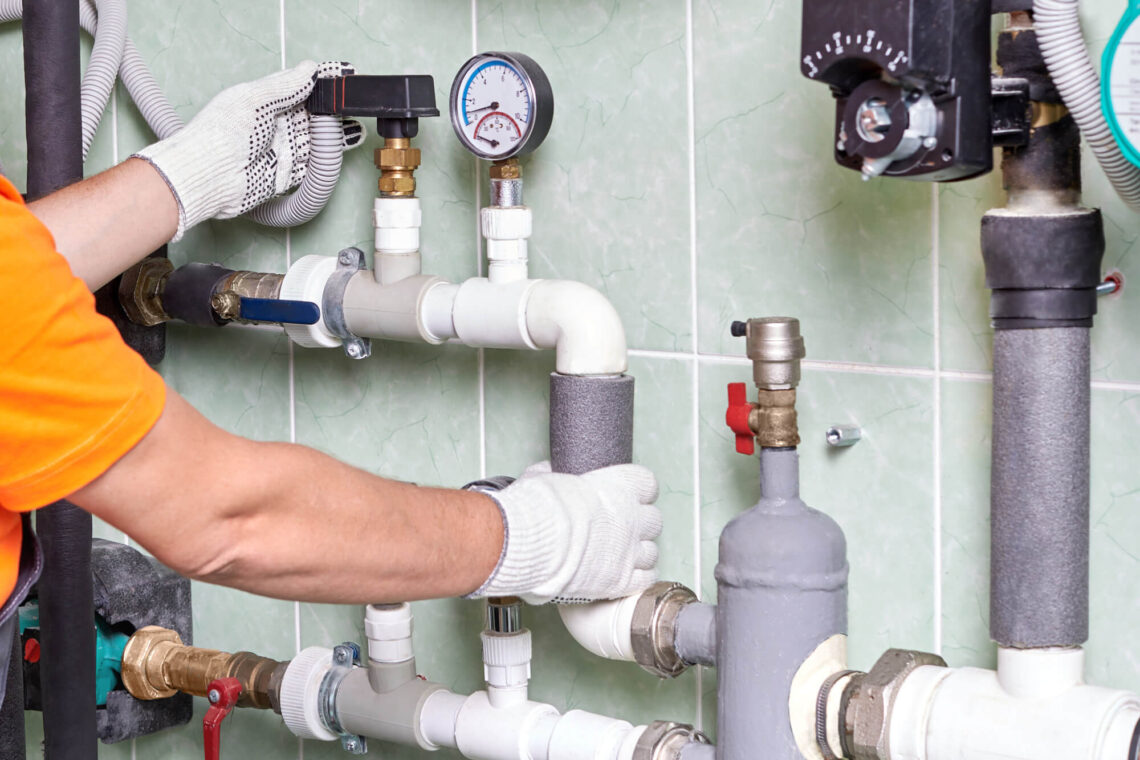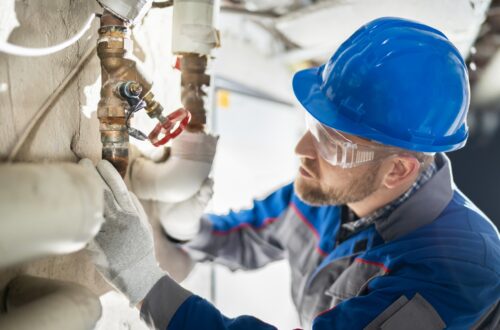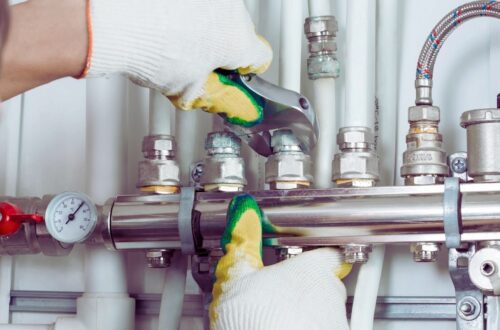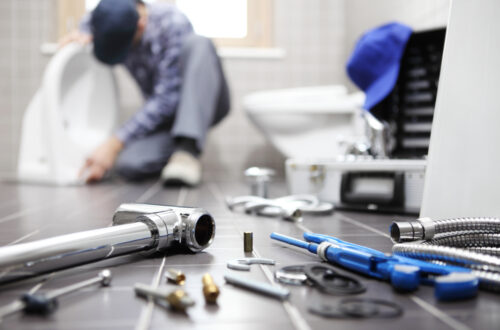When it comes to plumbing, it’s easy to assume that all plumbing systems are the same. After all, both residential and commercial buildings rely on plumbing systems for water supply, drainage, and sanitation. However, residential and commercial plumbing systems differ in several key ways, from the scale of the system to the complexity of the pipes and fixtures involved. Understanding these differences is important for homeowners, business owners, and anyone seeking plumbing services.
-
Scale and Size of the Plumbing System
One of the most noticeable differences between residential and commercial plumbing is the scale. Residential plumbing systems are designed to serve individual homes and small buildings, typically serving fewer people. In contrast, commercial plumbing systems are built to accommodate larger buildings, such as offices, hospitals, restaurants, or shopping centers. This means that commercial plumbing systems are significantly larger and more complex than residential ones.
For example, in a residential home, you might have one or two bathrooms and a kitchen with standard plumbing fixtures. In commercial buildings, however, plumbing needs to support many bathrooms, kitchens, and specialized fixtures like industrial sinks, dishwashers, and large-scale water filtration systems. Additionally, commercial plumbing systems need to handle a much higher volume of water usage, which requires larger pipes and more robust systems.
-
Pipe and Fixture Size
In residential plumbing, pipes are typically smaller in diameter compared to those used in commercial systems. Residential pipes often range from 1/2 inch to 2 inches, while commercial plumbing requires pipes with diameters as large as 6 inches or more, especially in high-traffic areas like restaurants or large office buildings. The larger pipes in commercial plumbing are necessary to handle the greater volume of water and waste that needs to be transported throughout the building.
Commercial plumbing fixtures also tend to be more industrial in design and functionality. For example, toilets and sinks in commercial spaces are built to withstand heavy use, so they are often more durable and designed for high water flow. In contrast, residential plumbing fixtures focus on comfort, appearance, and ease of use for homeowners.
-
Water Pressure and Demand
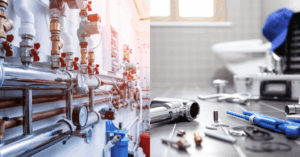 Water pressure requirements in residential and commercial buildings also differ significantly. In a residential system, the water pressure is typically consistent and needs to supply only a few bathrooms, a kitchen, and perhaps a laundry room. The water supply comes from the municipal system or a well and is usually sufficient to meet the daily needs of the household.
Water pressure requirements in residential and commercial buildings also differ significantly. In a residential system, the water pressure is typically consistent and needs to supply only a few bathrooms, a kitchen, and perhaps a laundry room. The water supply comes from the municipal system or a well and is usually sufficient to meet the daily needs of the household.
However, commercial plumbing systems often need to handle fluctuating water demand due to the number of people using the facilities at different times of the day. This includes managing water pressure for large buildings, which might require pressure-reducing valves, booster pumps, or water storage tanks to maintain consistent pressure throughout the building. Hospitals, for instance, may require specialized plumbing to ensure a steady flow of water to surgical rooms and other critical areas.
-
Complexity and Code Compliance
Commercial plumbing systems are generally more complex than residential ones. They often have additional components, such as backflow preventers, grease traps, and larger water heaters. The complexity increases because these systems must comply with stricter building codes and safety regulations that are designed to protect public health and ensure the safe operation of large facilities.
These codes govern everything from pipe materials to water treatment methods and waste disposal systems. For example, plumbing in a commercial kitchen must comply with health department regulations, including the proper installation of grease traps and sanitation systems. Residential plumbing systems also need to comply with building codes, but these regulations tend to be less stringent and less complex due to the smaller scale of the system.
-
Maintenance and Repairs
Maintenance for residential plumbing tends to be more straightforward, with occasional repairs to fixtures or pipes needed. Homeowners can usually deal with issues like leaky faucets, clogged drains, or pipe repairs by calling a local plumber who can handle the job quickly and efficiently.
On the other hand, commercial plumbing systems require more frequent maintenance due to their size and complexity. Plumbing in commercial buildings is subject to greater wear and tear, and repairs can be more involved. Maintenance professionals working on commercial plumbing systems need to ensure that all components are functioning properly to prevent water outages or health hazards. Regular inspections and preventive maintenance are critical in avoiding costly repairs and ensuring that the plumbing system operates efficiently at all times.
-
Specialized Plumbing Features
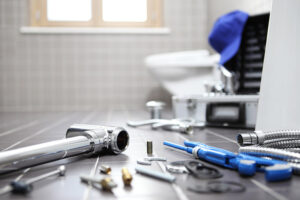 Commercial plumbing systems often require specialized components that aren’t found in residential systems. For example, a restaurant may need to install grease traps to prevent grease and oils from clogging the plumbing. Hospitals, on the other hand, may need medical gas lines to supply oxygen and other gases to different rooms and areas.
Commercial plumbing systems often require specialized components that aren’t found in residential systems. For example, a restaurant may need to install grease traps to prevent grease and oils from clogging the plumbing. Hospitals, on the other hand, may need medical gas lines to supply oxygen and other gases to different rooms and areas.
In addition, commercial buildings often require plumbing for complex systems such as fire suppression, water heaters with high capacities, and sophisticated drainage systems for heavy usage. Residential plumbing, on the other hand, is generally simpler, with a focus on potable water delivery, sewage removal, and basic heating or cooling systems.
While residential and commercial plumbing systems share some fundamental principles, their differences are significant. Commercial plumbing requires larger pipes, more robust fixtures, higher water pressure, and greater attention to code compliance due to the higher demand and complexity of the systems involved. Whether you’re a homeowner or a business owner, it’s important to understand these differences when seeking plumbing services. This ensures that you choose the right type of plumber with the necessary experience to handle your specific plumbing needs.
By recognizing these distinctions, you can make more informed decisions regarding your plumbing needs, ensuring safety, efficiency, and reliability. Whether you are maintaining your home or managing a commercial property, proper plumbing is essential to the comfort and functionality of your space.
